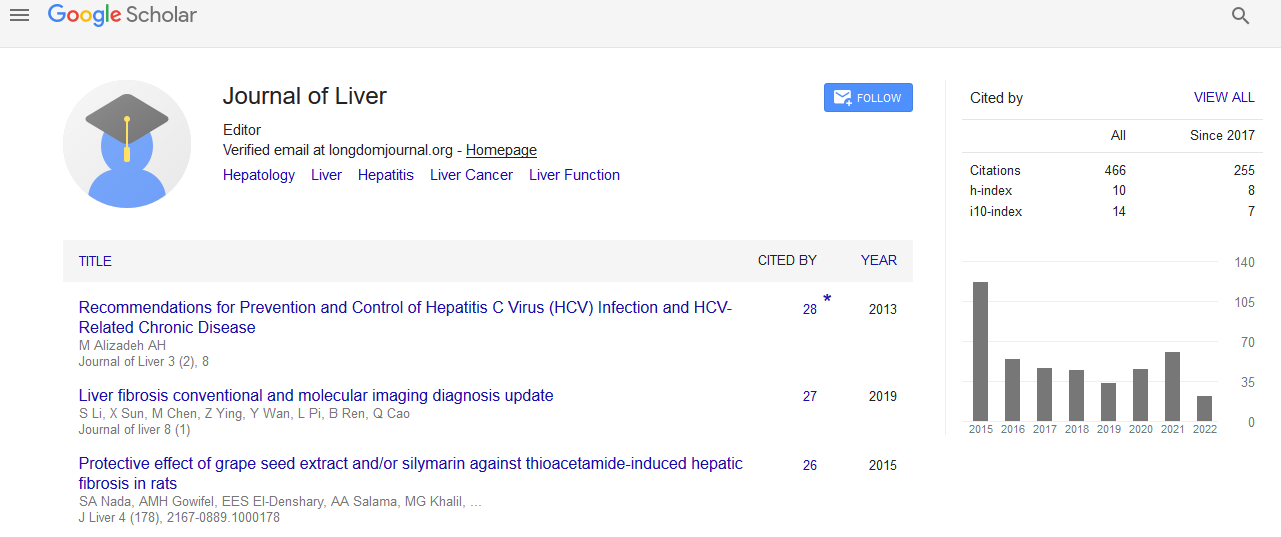PMC/PubMed Indexed Articles
Indexed In
- Open J Gate
- Genamics JournalSeek
- Academic Keys
- RefSeek
- Hamdard University
- EBSCO A-Z
- OCLC- WorldCat
- Publons
- Geneva Foundation for Medical Education and Research
- Google Scholar
Useful Links
Share This Page
Journal Flyer

Open Access Journals
- Agri and Aquaculture
- Biochemistry
- Bioinformatics & Systems Biology
- Business & Management
- Chemistry
- Clinical Sciences
- Engineering
- Food & Nutrition
- General Science
- Genetics & Molecular Biology
- Immunology & Microbiology
- Medical Sciences
- Neuroscience & Psychology
- Nursing & Health Care
- Pharmaceutical Sciences
The management of Hepatitis B infection in kidney transplant recipients
World Congress on Hepatitis
July 20-22, 2015 Orlando, Florida, USA
YapYat-Hin Desmond
Posters-Accepted Abstracts: J Liver
Abstract:
Chronic hepatitis B virus (HBV) infection confers adverse clinical outcomes in kidney transplant recipients (KTR) due to increased hepatic complications. This presents a clinical challenge especially in areas endemic for HBV infection such as the Asia-Pacific region, where the prevalence rates can be up to 10-15% in chronic dialysis patients. With advancement in pre- and post-transplant care including the availability of effective oral nucleoside/tide analogues (NA), there is a changing paradigm for the management of HBV-infected KTR and patient outcomes has also improved substantially. Pre-transplant management includes meticulous infection control measures in dialysis units, reduced blood transfusion with the use of erythropoietin stimulating agents and also a universal HBV immunization program. Careful donor-recipient serological matching and the use of HBV hyperimmunoglobulins can also help reduce HBV transmission peri-operatively. The pre-emptive or prophylactic use of NA in post-renal transplant setting has brought major impact to this area. Lamivudine, the first oral NA available, can effectively suppress viral replication and improve short- and long-term patient survival in HBV-infected KTR, but is also associated with high rates of resistance. Development of drug resistance remains an important issue as most KTR require prolonged anti-viral treatments. In this context, recent data suggested that entecavir is efficacious for HBV DNA suppression and transaminase improvements in both treatment-na�ve and lamivudine-resistant KTR, and was associated with very low resistance rates in the former group. More importantly, entecavir-treated patients all showed stable renal allograft functions after 3 years of follow-up. Other rescue options include adefovir and tenofovir which are nephrotoxic, and hence appropriate dosage adjustment and careful allograft function monitoring should be exercised when used in KTR.

